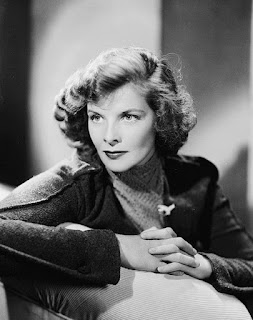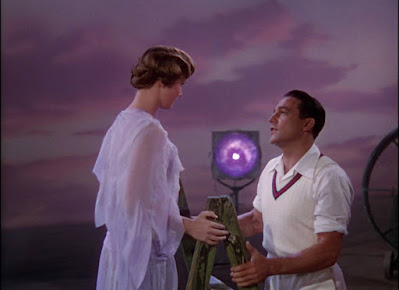Back and Better Than Ever: Katharine Hepburn, "Box Office Poison"
Long time, no see! As some of you may know, I'm a high school student, and as most of you may know, high school is busy. I realized I haven't written an article since October 2021 (yikes!) but, like Katharine Hepburn in 1940, I'm making a comeback. Here it is, everyone - a new blog article about the Great Kate!
Katharine Hepburn skyrocketed to fame in 1932 after her film debut in A Bill of Divorcement. Suddenly all of Hollywood was curious about this polished society beauty from the East Coast who had made her way to the West. She won her first Oscar in 1933 for Morning Glory, and made a hit adaptation of Little Women the same year. Needless to say, she was a quickly-rising star. But Kate wanted to prove herself on the stage, where her acting career had gotten its start. She asked for leave from her contract at RKO Radio Pictures, but they insisted she make a movie called Spitfire first.
Spitfire was a ridiculous, if somewhat-understandable, choice for RKO's newest star. It centers around Trigger Hicks (yes, that is the character's name), a faith healer in a mountain village who falls for an engineer building a dam nearby. My only thought is that maybe RKO was trying to play off the whole Kate-as-a-modern-woman-unwilling-to-conform-to-society idea? If Spitfire sounds like an awful film, you've got it right, because it was the worst of Hepburn's career. The box-office hated it, audiences hated it, and Kate hated it. For the rest of her life, she kept a picture of herself as Trigger in her room as a reminder to stay humble.
After the disaster that was Spitfire, Kate returned to Broadway to star in The Lake. In a cruel twist of fate, the show was a flop as well. So terribly was it received that when the producer wanted to take the failing show on tour, Hepburn paid him all the money she had to close it. (In 1937's ironic comedy Stage Door, she would re-use her famous line from The Lake, "The calla lilies are in bloom again.") Now, without money or reputation, she returned to Hollywood and spent the next few years making movies with minor success. Her main struggle was with the public. Seen as unapproachable and snobby, La Hepburn was an enigma to her audiences. Was she standoffish, or was that just her upbringing? Was she uncaring, or was that just a want for privacy? In 1938, she made Bringing Up Baby, which proved to be the last straw for Hollywood. Now seen as one of the great classics of cinema, it was a failure upon release.
That same year, the Independent Theater Owners of America published a list of stars they thought were responsible for the ongoing decline in box-office sales. They dubbed these stars, including Mae West, Joan Crawford, and Greta Garbo, "box-office poison". Also on the list was Katharine Hepburn. (The truth of this list is doubtable because it also included Fred Astaire, who besides 1937's Damsel in Distress, had only made incredibly successful movies with Ginger Rogers thus far in his career.)
Ever determined, Kate bought out her RKO contract and returned to Broadway. There, she headlined The Philadelphia Story by playwright Philip Barry, who had Kate in mind when he wrote the part of Tracy Lord. The show was a smash hit, and revived the theater crowd's interest in Hepburn. Now it was time to do the same out West - and Kate's comeback plan was nothing short of genius. Howard Hughes, her on-and-off millionaire paramour, had bought her the film rights to The Philadelphia Story. She returned to Hollywood and sold the rights to MGM, on the condition that she could choose the director, writer, and her co-stars, as well as receive $175,000 for the rights and a $75,000 salary. She asked for Spencer Tracy and Clark Gable, but both were unavailable, so the studio gave her their next-best: Cary Grant and Jimmy Stewart. Both actors were due for their next big break, and all three stars would find it in The Philadelphia Story.
The movie was an incredible success, as beloved today as it was upon release. And just like that, Katharine Hepburn was back on top in Hollywood, "box office poison" no longer.
Thank you for reading! I apologize for the long while without writing - but I promise I'll be here more often with more Old Hollywood stories to share! - Maeve







Comments
Post a Comment